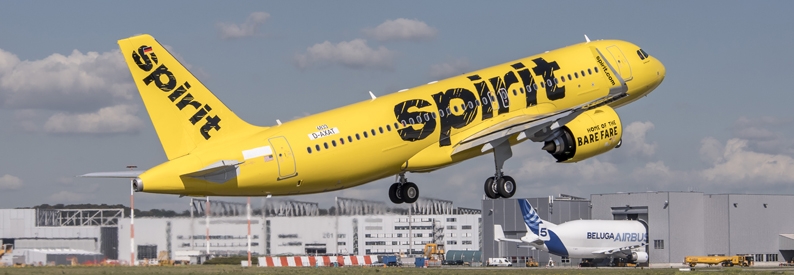Spirit May Cancel Airbus Orders Amid Tariff Concerns

Spirit Airlines has issued a warning that it may cancel or postpone upcoming Airbus aircraft deliveries due to uncertainty over newly imposed U.S. tariffs on European imports. In a May 30, 2025 SEC filing, the ultra-low-cost carrier expressed concerns that escalating trade tensions and tariff-related costs could significantly impact its fleet strategy and financial outlook.
The issue stems from a 20% tariff introduced on April 9, 2025, affecting goods imported from the European Union, including aircraft and parts. While the tariff has been temporarily suspended for 90 days, a universal 10% charge remains in effect. Spirit, which operates an all-Airbus fleet, depends heavily on EU-manufactured aircraft and components. The carrier noted that these tariffs could raise costs tied to acquiring new aircraft and maintaining its existing fleet.
“We may also seek to postpone or cancel delivery of certain aircraft currently scheduled for delivery, and we may choose not to purchase as many aircraft as we intended in the future,” Spirit stated in the filing. “Any such action could have a material adverse effect on the size of our fleet, business, financial condition and/or results of operations.”
According to ch-aviation data, Spirit Airlines is currently expecting the delivery of 25 Airbus A320neo and 32 Airbus A321neo aircraft. Any delay or reduction in these orders could stall the airline’s long-term growth plans, especially after its recent emergence from Chapter 11 bankruptcy proceedings.
In March 2025, Spirit completed a financial restructuring process, eliminating around $795 million in debt through a court-approved plan. The airline described the transaction as a “consensual, deleveraging” effort that provided greater financial flexibility and a healthier balance sheet going forward.
However, the current trade and tariff landscape has emerged as a new challenge just months after its restructuring success. Spirit emphasized the risk of potential retaliation from international trade partners, which could lead to further cost increases or supply chain disruptions. As the situation evolves, the airline may need to reassess its fleet acquisition strategy and consider new cost-saving measures to preserve its post-restructuring financial stability.
The unfolding tariff dispute poses a significant threat not just to Spirit Airlines but also to other U.S. carriers relying on imported aircraft. With aircraft delivery decisions now tied to international trade policy, the airline industry faces added pressure at a time when many carriers are focused on recovery and expansion.
Related News : https://airguide.info/?s=Spirit+Airlines
